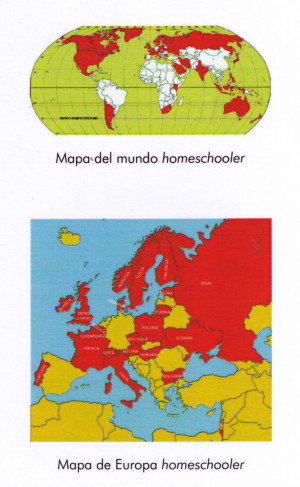British Homeschoolers and The War on Kids
 Friday, April 9, 2010 at 1:17PM
Friday, April 9, 2010 at 1:17PM
Two interesting things happened to me in the past two days: I went to a screening of Cevin Soling’s documentary, The War on Kids and I learned that British homeschoolers were able to help defeat legislation that would have severely curtailed their rights to raise and teach their children as they wish. The connections between these events for me are the strategies and tactics being used to control both kids and parents who don’t conform to school regulations.
The War on Kids documents many of the major problems children face just by attending school, from zero tolerance policies to the extreme overuse of drugs to control their behavior. I watched the movie on DVD on my own earlier, but seeing it with an audience is a different experience, and one I’m glad I had. First, I got to hear and speak with the director, Cevin, who is an extremely articulate and thoughtful man. His descriptions about his own education, and how he learned so much more outside of school than in school, were honest and interesting. Second, I got to hear some audience reactions to the subject matter of the film. Most of the college students in attendance—it was screened at Tufts University—seemed interested in the material though not particularly moved to action by it. I got the sense that many felt the problems presented in the movie did not apply to them and their schooling, though it seemed to resonate with a few. Waking people up to the real issues of schooling—they are about how we treat children, not how we teach and grade them—is nearly impossible because we’ve all been schooled and learned helplessness in the face of authority as a result. As a homeschooling mom wrote in the 1920’s, “You can’t learn democracy in a place that doesn’t practice it.” Fortunately, we can deschool ourselves and unschool our children or, if you can afford to and want to, you can find private schools or other alternatives that allow for more personalized learning. However, as the recent brouhaha over homeschooling in Great Britain shows, we in the US may be in for serious challenges to our homeschooling freedoms on the grounds of psychological, educational and physical abuse.
In the late nineteen eighties I became aware of a new psychological illness that was noted in Britain, School Phobia. I can’t remember the book title, but Holt Associates/Growing Without Schooling sold a book from Britain that challenged that diagnosis at the time. This diagnosis is now used in the US. Since then I’ve heard about homeschooling parents and children who, when they get belligerent in the face of authorities who challenge their homeschooling, are told they have Oppositional Defiance Disorder. Further, Graham Badman, the man whose report spurred the restrictive homeschooling legislation in Britain, remarked that he felt many homeschooling mothers probably suffered from Munchausen by Proxy Syndrome. He also noted that homeschooling parents are twice as likely to be child abusers as non-homeschooling parents. Apparently one does not need to provide any data to make such claims, just evidence that the child or parent disagreed with you in an excited manner. Why use a certified psychiatrist to make these judgments when they’re so evident and easy to do yourself?
Indeed, Dr. Peter Breggin and other professionals interviewed in The War on Kids, make the point about how easy it is for a child to be diagnosed and put on behavior modifying drugs in the US. I read an article about “smart pills” in The New Yorker last year; Ritalin is considered to be such a pill because it enables the user to stay up late and focus narrowly on their work. Ritalin has become a drug of choice for many college students as a result, and they don’t need a black market to get it. Students interviewed in the article noted how easy it was to pretend they had attention deficit disorder in order to get the doctors to prescribe Ritalin for them.
As homeschooling grows there will be more “push back” from the education establishment, including from homeschoolers who share many of school’s assumptions about how and why children learn. Apparently one of the primary cheerleaders for the Badman Report in Britain was a homeschooler who didn’t think other homeschoolers were doing it the correct way, i.e. like conventional school. Homeschoolers, and unschoolers in particular, need to be acutely alert to the dangers of teachers, politicians, and social workers applying psychological diagnosis to people just because they do not use conventional education.
It is shameful that psychological problems that are very real for some people are being used as a rationale to force or shame healthy people into staying in school or to punish them for trying something different for their children. Yes, there is a War on Kids occurring, and I urge you to see this movie to learn more about it (Disclaimer: I appear in this movie). However, there is also a War on Parents occurring, and both wars are attempting psychological warfare to subdue parents and kids.



